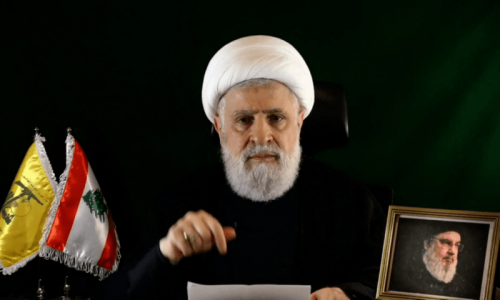BELGRADE: Kosovo Albanian leaders are “terrorists”, America is an “ignorant aggressor”, and Serbia is a victim that must turn to Russia for help.
The rhetoric emerging from Serbia these days harkens back to the era of late autocrat Slobodan Milosevic.
Nearly 20 years ago, Milosevic used the Serb passions over Kosovo to stir up the masses and intimidate non-Serbs in the former Yugoslav federation.
Four lost wars later, Serbia is resorting to similar tactics in its denunciations of the West over its recognition of an independent Kosovo, a region Serbs see as their sacred heartland.
“The West ... is determined to humiliate us,” Prime Minister Vojislav Kostunica shouted at rally in Belgrade last week. He said Serbia would never accept a Western-backed “fake state of Kosovo because in a fake state everything is a lie”.
Even Ivica Dacic, leader of Milosevic’s old Socialist party, praised the Kostunica camp for “returning to Milosevic’s policies” over Kosovo.
This time, however, Serbia lacks the might of the old Yugoslav Army that Milosevic used to compel Kosovo’s ethnic Albanian leadership to bend to his will. Even ultranationalists say they won’t challenge Nato’s peacekeeping force in the province.
Still, Milosevic’s anti-Western defiance which pushed Serbia into international isolation in the 1990s again resonates among the nationalists.
“Serbia barely survived the bloody outcome of Milosevic’s disastrous rule,” said Nenad Canak, a Serbian opposition politician. “No lesson was learned, and we are back to the same old policies all over again.”
Kosovo has not been under Serbia’s control since 1999, when a 78-day bombing campaign by Nato forced Milosevic to end his bloody crackdown against separatist guerrillas.
And it’s not only the anti-Albanian rhetoric that is the same as in the 1990s.
Members of the same right-wing militias that Milosevic recruited to fight the wars in Croatia, Bosnia and Kosovo in the 1990s have returned to the streets of Belgrade, attacking US and other Western embassies and issuing threats against liberal politicians that oppose government policies.
Some say Kostunica, who led the popular uprising that toppled Milosevic in 2000, is beginning to sound increasingly similar to the former strongman.
“The United States has ... trampled on international law that is the basis of the peace and stability in the world,” Kostunica said this week, branding ethnic Albanian leaders who proclaimed independence on Feb 17, as terrorists and drug traffickers.
“It is possible that America thought (Serbia) is an unimportant nation. But Serbia will prevail ... and it will win in the end.”
Kostunica has said that Serbia won’t restore relations with the United States and other Western states until they annul their recognition of Kosovo something US officials said will never happen.
He also said Serbia must now drop its proclaimed goal of joining the European Union, and should instead turn to its Slavic ally Russia which also staunchly opposes Kosovo’s independence.
Pro-Western President Boris Tadic, who last month defeated an ultranationalist politician in presidential elections, has had little to say about the nationalist onslaught except to reaffirm his commitment to Kosovo.
“With this leadership, Serbia is sliding rapidly toward self-isolation,” said Ljubodrag Stojadinovic, analyst of the Politika daily.
Serbia’s economy minister Mladjan Dinkic, a pro-Western politician who advocates EU membership for Serbia, described the growing radicalisation of government policies caused by Kosovo’s secession as a case of “collective madness”.
Dinkic says life must go on in Serbia despite the loss of Kosovo.
“Serbia has to think about the lives and the future of its eight million people, and not only Kosovo,” Dinkic said, heralding a possible break-up of the conservative-liberal coalition that has ruled the country since last year.
Like Milosevic, Kostunica is using state television and the pro-government media to prop up Serb nationalism over Kosovo’s independence, and hammer away at the message that the West is united against Serbia.
Some say Kostunica’s allies in the government are indirectly encouraging nationalist militants to stage further attacks against the liberals and Western targets.
“The authorities cannot prevent any (Serb) coming from Kosovo from beating up those who say Kosovo is not ours,” said Velimir Ilic, a government minister.
Serbia’s civil society groups this week protested such remarks by Kostunica’s allies.
“Not even during Milosevic’s times did such open calls for murder and violence come from government ministers,” the NGOs said in a joint statement.—AP













































Dear visitor, the comments section is undergoing an overhaul and will return soon.